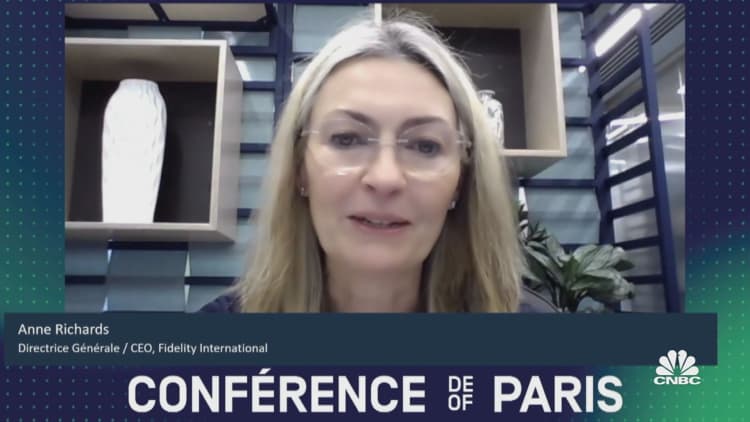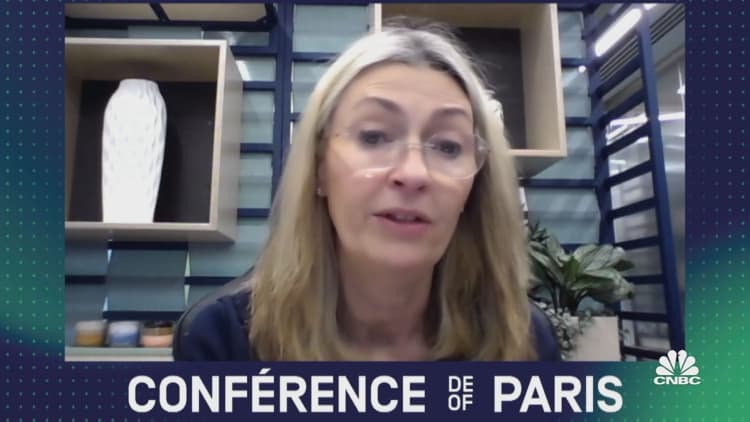
Anne Richards, CEO of Fidelity International, told CNBC that central banks should wait a couple more months before tightening monetary policy.
Richards, who was speaking to CNBC's Karen Tso on a panel on Tuesday at the Conference de Paris, acknowledged that central banks are in a difficult position in terms of making monetary policy decisions.
She said that, on the one hand, central banks don't want to let certain parts of the economy overheat, or inflation to get "out of control." However, central banks also don't want to repeat past mistakes by tightening monetary policy too rapidly, she said, alluding to the effect this had in the Great Depression of the 1930s and the 2013 "taper tantrum."
"I do subscribe strongly to this view that it's better to wait a month or two months and just be clear on the data path before acting. I think that is a lesser evil than acting prematurely to tighten," she said.
Economists have argued that the Federal Reserve's raising of interest rates in the late 1920s and early 1930s played a key role in the Great Depression. And U.S. Treasury yields surged in 2013, when the Fed made the sudden announcement that it would be reducing its purchases of bonds.
Her comments were made prior to Fed Chairman Jerome Powell saying, in congressional testimonies on Tuesday and Wednesday, that the U.S. central bank could reduce its monthly bond-buying program more quickly than the $15 billion a month previously announced.
Notably, Powell said it was time to stop using the word "transitory" to describe inflation. He said pricing pressures and economic strength meant that it was appropriate "to consider wrapping up the taper of our asset purchases, which we actually announced at the November meeting, perhaps a few months sooner."
Powell said he expected Fed members to discuss this at its upcoming December policy meeting. His comments rattled markets and saw bond yields rise.
The European Central Bank is facing calls to offer a similar clarification on the nature of inflation.
A 'very difficult call'
For her part, Richards said there are some elements of inflation that are "transitory" and others that are "structural."
However, she argued that it's easier to "rein in inflation, hard though that may be, but it is still easier to do that than to dig an economy out of a depression once you're in it."

She said that Bank of England Governor Andrew Bailey made a "very difficult call" when he surprised markets by deciding to hold interest rates at record lows at the U.K. central bank's November meeting, despite "quite considerable criticism."
Richards added that "probably on balance people now feel that that caution might well have been quite justified given what's happened more recently," with the emergence of the omicron variant.
She said central banks can always accelerate their pace of tightening "a little faster if truly the economy is off to the races and inflation is off to the races, but we're not in that state yet."


